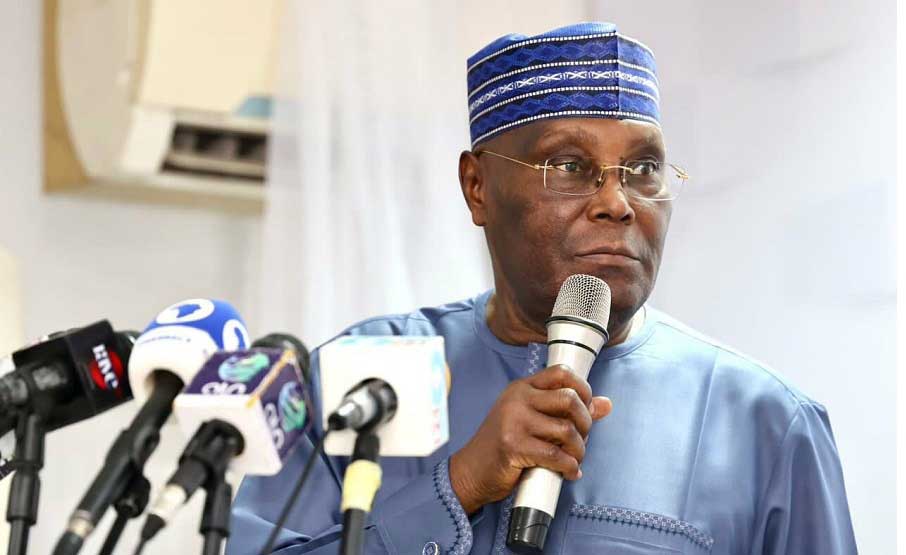Former Vice President Atiku Abubakar has raised concerns about the proposed 2025 federal budget, describing it as inadequate to address Nigeria’s economic challenges and stimulate sustainable growth.
In a statement released on Sunday, Abubakar critiqued the budget for perpetuating “business-as-usual” practices, increasing debt reliance, and failing to tackle systemic inefficiencies.
The 2025 federal budget proposes total expenditures of N48 trillion, with projected revenues of N35 trillion, resulting in a deficit exceeding N13 trillion—approximately 4% of the Gross Domestic Product (GDP).
According to Abubakar, the administration plans to finance this deficit through more than N13 trillion in new borrowings, including N9 trillion in direct loans and N4 trillion in project-specific financing.
“This borrowing strategy mirrors the approach of previous administrations, leading to a ballooning public debt profile and heightened risks associated with interest payments and foreign exchange exposure,” Abubakar said.
Abubakar highlighted lapses in budgetary execution, citing underperformance in the 2024 fiscal year as a cautionary example. By the third quarter of 2024, less than 35% of the allocated capital expenditure for ministries, departments, and agencies (MDAs) had been disbursed, despite claims of 85% budget execution.
“This raises serious concerns about the credibility of the 2025 budget, particularly in capital expenditure, which is critical for driving economic transformation,” he stated.
The budget allocates N15.8 trillion (33% of total expenditure) to debt servicing, nearly equal to the N16 trillion earmarked for capital expenditure.
Debt servicing also surpasses spending on critical sectors such as defence (₦4.91 trillion), infrastructure (₦4.06 trillion), education (₦3.52 trillion), and health (₦2.4 trillion).
READ ALSO: Atiku Abubakar questions NBS website hacking claim, raises doubts over data integrity
“This imbalance threatens to crowd out essential investments and perpetuates a vicious cycle of rising borrowing and debt accumulation, jeopardizing fiscal stability,” Abubakar warned.
Abubakar criticized the ₦14 trillion allocated to recurrent expenditure, representing 30% of the budget. He argued that such spending, which supports an oversized bureaucracy and inefficient public enterprises, leaves limited resources for development.
“The government has failed to implement concrete steps to curb wastage and enhance public spending efficiency, exacerbating fiscal challenges,” he noted.
Capital spending, which ranges from 25% to 34% of the total budget, translates to an average allocation of ₦80,000 ($45) per capita. Abubakar deemed this insufficient to address Nigeria’s significant infrastructure deficit and stimulate economic growth.
“Infrastructure remains the backbone of any sustainable economy, and this allocation falls far short of what is needed to tackle Nigeria’s developmental challenges,” he said.
The proposed increase in Value Added Tax (VAT) from 7.5% to 10% also came under scrutiny. Abubakar described the measure as regressive, arguing it would exacerbate the cost-of-living crisis and impede economic growth.
“Placing additional tax burdens on an already struggling populace while failing to address governance inefficiencies risks stifling domestic consumption and worsening economic hardships,” he explained.
Abubakar emphasized that the 2025 budget lacks the structural reforms and fiscal discipline required to tackle Nigeria’s economic challenges. He urged the administration to:
Economists and financial experts have echoed Abubakar’s concerns, calling for more prudent fiscal policies.
Dr. Adebayo Omotosho, a professor of economics at the University of Ibadan, said, “Debt servicing at this scale leaves little room for critical investments. The government must focus on optimizing revenue collection and reducing wastage in governance.”
Maryam Aliyu, a budget analyst, added, “The VAT increase is a tough sell in a country where inflation is already high. Structural reforms are necessary to generate sustainable revenue without overburdening the populace.”

 Entertainment1 week ago
Entertainment1 week ago
 Business7 days ago
Business7 days ago
 Football1 week ago
Football1 week ago
 Health1 week ago
Health1 week ago
 Business1 week ago
Business1 week ago
 Latest1 week ago
Latest1 week ago
 Entertainment1 week ago
Entertainment1 week ago
 Football7 days ago
Football7 days ago

